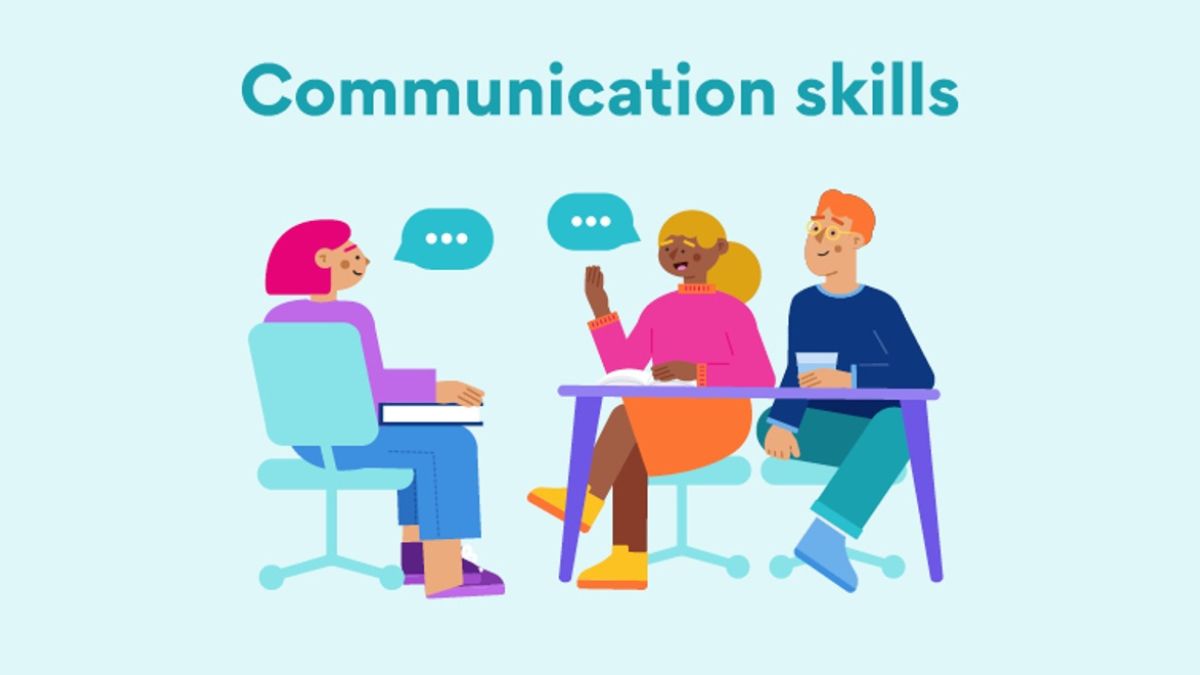
10 Best Ways to Improve Your English Language Skills
Improving your English language skills is essential for effective communication in today’s globalized world. Whether for academic purposes, professional advancement, or personal enrichment, enhancing your proficiency can significantly impact your opportunities.
This article explores ten effective ways to improve your English language skills.
Table of Content
Why is it Important to Improve my English Language Skills?
10 Best Ways to Improve Your English Language Skills
What are Some Effective Ways to Practice Speaking English?
How Can I Improve my Listening Skills in English?
How Can I Set Realistic Goals for Improving my English?
Why is it Important to Improve my English Language Skills?
1. Enhanced Communication
- Clarity: Improved language skills lead to clearer and more effective communication, both in spoken and written forms.
- Confidence: With better proficiency, you gain the confidence to express your thoughts and ideas without hesitation.
2. Career Opportunities
- Global Workforce: English is often considered the global language of business. Proficiency in English can open doors to job opportunities in multinational companies.
- Professional Advancement: Many employers look for candidates with strong English skills, as it can be crucial for teamwork, negotiations, and client interactions.
3. Academic Success
- Access to Resources: A significant amount of academic literature and research is published in English. Proficiency allows you to access and understand this material effectively.
- Higher Education: Many prestigious universities and colleges use English as the medium of instruction. Good English skills can help you excel in your studies and succeed in your chosen field.
4. Social Interaction
- Building Relationships: Strong English skills facilitate communication with people from different cultures and backgrounds, enhancing social interactions and friendships.
- Networking: Being able to converse in English can expand your professional and social network, providing new opportunities for collaboration and connection.
5. Cultural Understanding
- Engagement with Media: Understanding English allows you to enjoy English-language films, music, books, and news, enriching your cultural experiences.
- Travel: Proficiency in English can make traveling easier, as it is widely spoken in many countries, allowing for better navigation and interactions with locals.
6. Cognitive Benefits
- Critical Thinking: Learning and using a new language improves cognitive functions, such as problem-solving, critical thinking, and creativity.
- Memory Improvement: Engaging with a new language enhances memory and mental agility, beneficial in various aspects of life.
7. Personal Growth
- Self-Improvement: Mastering a language is a fulfilling challenge that boosts self-esteem and personal development.
- Lifelong Learning: Improving your English encourages a mindset of continuous learning and adaptability in an ever-changing world.
10 Best Ways to Improve Your English Language Skills
1. Read Regularly
- Diverse Materials: Engage with a variety of reading materials, including books, newspapers, magazines, and online articles. Choose genres that interest you to make reading enjoyable.
- Active Reading: Take notes, highlight new vocabulary, and summarize paragraphs in your own words. This enhances comprehension and retention.
2. Expand Your Vocabulary
- Daily Word Practice: Learn a new word each day. Use vocabulary apps, flashcards, or word-a-day calendars to facilitate this practice.
- Contextual Learning: Try to understand how words are used in sentences rather than memorizing definitions. This helps in remembering the context in which words are applied.
3. Practice Speaking
- Language Exchange: Join conversation groups or language exchange programs where you can practice speaking with native speakers or fellow learners.
- Recording Yourself: Use a smartphone or computer to record your speech. Listen to your pronunciation and intonation, then work on areas that need improvement.
4. Improve Listening Skills
- Podcasts and Audiobooks: Listen to English-language podcasts or audiobooks. Choose topics that interest you, and pay attention to the pronunciation and rhythm of the language.
- Movies and TV Shows: Watch English-language films and series. Use subtitles initially if necessary, and gradually try to watch without them to improve listening comprehension.
5. Write Regularly
- Journaling: Maintain a journal in English. Write about your daily experiences, thoughts, or reflections. This practice enhances writing fluency and allows you to experiment with new vocabulary.
- Structured Writing: Try writing essays, reports, or stories. Seek feedback from peers or instructors to identify areas for improvement.
6. Use Language Learning Apps
- Interactive Learning: Apps like Duolingo, Babbel, or Rosetta Stone offer structured lessons and activities tailored to different proficiency levels. These platforms often include quizzes, games, and challenges to keep you engaged.
- Progress Tracking: Many apps allow you to track your progress, helping you stay motivated and focused on your language goals.
7. Engage in Online Courses
- Formal Education: Enroll in online English courses offered by platforms like Coursera, Udemy, or edX. These courses often cover grammar, vocabulary, and conversational skills.
- Specialized Skills: Look for courses that focus on specific areas you want to improve, such as business English, academic writing, or public speaking.
8. Immerse Yourself in the Language
- Travel or Study Abroad: If possible, travel to an English-speaking country or participate in a study-abroad program. Immersion is one of the most effective ways to enhance language skills.
- Cultural Engagement: Engage with English-speaking communities in your area or online. Participate in cultural events, discussion forums, or social media groups where English is the primary language.
9. Practice Grammar
- Grammar Exercises: Use online resources, workbooks, or apps dedicated to grammar practice. Focus on common grammatical structures and rules.
- Writing Correction: When writing, pay attention to your grammatical accuracy. Use tools like Grammarly to help identify and correct mistakes in real-time.
10. Set Realistic Goals
- Specific Objectives: Define clear, achievable goals for your language learning. For example, aim to learn a certain number of new words each week or to write a short essay every month.
- Consistent Practice: Establish a regular study schedule that incorporates different skills (reading, writing, speaking, listening) to ensure balanced improvement.
What are Some Effective Ways to Practice Speaking English?
Here are some effective ways to practice speaking English:
1. Join Conversation Groups
- Language Exchange: Participate in local or online language exchange groups where you can practice speaking with native speakers or other learners.
- Meetup Events: Look for local meetups focused on English conversation practice. These gatherings provide a relaxed environment for speaking.
2. Engage in Online Platforms
- Video Calls: Use platforms like Zoom or Skype to have video conversations with friends or language partners.
- Language Learning Apps: Apps like Tandem or HelloTalk connect you with native speakers for real-time conversations.
3. Practice with Friends and Family
- Daily Conversations: Speak English with friends or family members who are also learning the language. Regular conversations help build confidence.
- Role-Playing: Engage in role-playing exercises to simulate real-life scenarios, such as ordering food, job interviews, or casual conversations.
4. Record Yourself
- Self-Assessment: Record yourself speaking on various topics, then listen to identify areas for improvement, such as pronunciation and fluency.
- Progress Tracking: Keep recordings over time to track your improvement and celebrate your progress.
5. Use English in Everyday Situations
- Label Items: Label objects around your house with their English names to reinforce vocabulary while practising speaking aloud.
- Think Aloud: Practice speaking in English by thinking aloud as you go about your day, describing your actions or thoughts.
6. Participate in Online Classes
- Interactive Learning: Enroll in online courses or workshops that emphasize speaking skills, often including interactive discussions and group activities.
- Professional Tutors: Consider hiring a tutor for one-on-one speaking practice focused on your specific goals and areas for improvement.
7. Watch and Mimic
- Movies and TV Shows: Watch English-language films and series, then practice mimicking the dialogues to improve pronunciation and intonation.
- YouTube Videos: Follow English-speaking YouTubers and practice speaking along with them, imitating their speech patterns and accents.
8. Public Speaking and Presentations
- Join Clubs: Participate in organizations like Toastmasters, which focus on public speaking and leadership skills, providing valuable practice and feedback.
- Create Presentations: Prepare and deliver presentations on topics of interest, either to friends or in more formal settings, to gain experience speaking in front of an audience.
9. Engage in Discussions
- Online Forums: Join online discussion forums or social media groups related to your interests, where you can participate in conversations in English.
- Debate Clubs: Participate in or form a debate club to practice articulating your thoughts and defending your opinions in English.
10. Use Flashcards and Games
- Flashcard Apps: Use flashcards with phrases or conversation starters, and practice speaking them out loud.
- Language Games: Engage in language games that encourage speaking, such as word association games or charades.
How Can I Improve my Listening Skills in English?
Here are some effective ways to improve your English listening skills:
- Listen to English Media: Regularly watch movies, TV shows, or documentaries in English. Start with subtitles if needed, then try without them.
- Podcasts and Audiobooks: Listen to English-language podcasts or audiobooks. Choose topics that interest you to stay engaged.
- Music: Listen to English songs and pay attention to the lyrics. Try to understand the meaning and context of the songs.
- Active Listening: Practice active listening by summarizing what you hear. After listening to something, write or speak a summary to reinforce understanding.
- Language Learning Apps: Use apps like Duolingo or Rosetta Stone, which include listening exercises and activities tailored for learners.
- Engage in Conversations: Practice listening by engaging in conversations with native speakers or other learners, focusing on understanding their speech.
- Transcription Exercises: Transcribe short audio clips or dialogues. This helps improve your ability to understand spoken language accurately.
- Watch News: Follow English-language news channels or websites. The formal language used in news can help you learn proper pronunciation and vocabulary.
- Listen for Context: When listening, try to understand the context and main ideas rather than focusing on every single word.
- Repeat and Rewind: If you miss something, don’t hesitate to rewind and listen again. This helps reinforce what you’ve learned.
How Can I Set Realistic Goals for Improving my English?
Here’s how you can set realistic goals for improving your English:
- Identify Specific Areas for Improvement:
- Determine whether you want to focus on speaking, listening, reading, writing, or a combination of these skills.
- Use the SMART Criteria:
- Specific: Clearly define what you want to achieve (e.g., “I want to improve my speaking skills”).
- Measurable: Decide how you will measure your progress (e.g., “I will practice speaking for 30 minutes every day”).
- Achievable: Set goals that are challenging yet attainable (e.g., “I will learn 10 new vocabulary words each week”).
- Relevant: Ensure the goal aligns with your overall objectives (e.g., “I want to improve my English for a job interview”).
- Time-bound: Set a deadline for achieving your goals (e.g., “I want to complete this goal in three months”).
- Break Down Larger Goals:
- Divide larger goals into smaller, manageable tasks. For example, if your goal is to read a book in English, break it down into chapters or sections to read weekly.
- Create a Study Schedule:
- Develop a routine that incorporates your language practice. Consistency is key, so dedicate specific times each week for focused practice.
- Stay Flexible:
- Be open to adjusting your goals based on your progress and experiences. If a goal feels too ambitious, modify it to make it more attainable.
- Track Your Progress:
- Keep a journal or use apps to monitor your achievements. Celebrate small milestones to stay motivated.
- Seek Feedback:
- Engage with teachers, tutors, or language partners for constructive feedback on your progress. This can help refine your goals and methods.
- Set Short-Term and Long-Term Goals:
- Establish short-term goals for immediate improvement (e.g., “I will watch one English movie a week”) and long-term goals for broader objectives (e.g., “I want to pass an English proficiency exam in a year”).
- Stay Motivated:
- Remind yourself why you want to improve your English and visualize the benefits you will gain from reaching your goals.
- Reflect and Adjust:
- Periodically review your goals and progress. Reflect on what is working, and what isn’t, and make necessary adjustments to your strategies.
Conclusion
Improving your English language skills is a gradual process that requires consistent effort and practice. By incorporating these ten strategies into your routine, you can enhance your proficiency and confidence in using the English language.
Remember to be patient with yourself, celebrate your progress, and continue to challenge yourself as you advance in your language journey.
No comment found
Related Posts

Top 20 Motivational Quotes for Students to Work Hard

How to Use Past Questions for Effective WAEC and JAMB Preparation

Language barriers in Nigerian Education and how to Overcome them

How to Excel in Mathematics: Tips for Nigerian Students

How to Summarize Notes Effectively for Faster Revision


